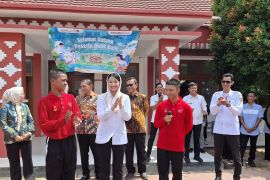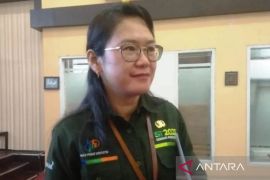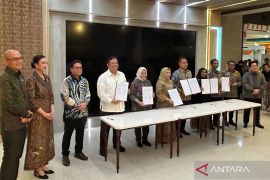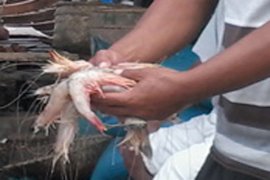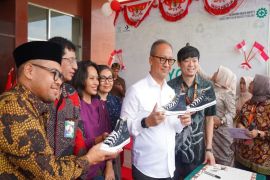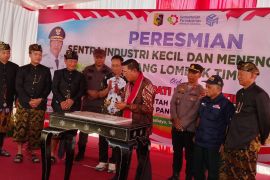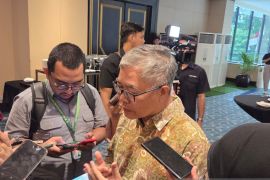Producers view that the ban would discourage farmers from developing and nurturing the country`s rattan which would eventually have an impact on its sustainability.
After all, the other government reason is to give local rattan industries a chance to develop their business with enough raw materials and added value for the country.
Yet, producers complain that local rattan furniture industries cannot absorb all of their raw rattan products. Therefore, the Association of Indonesian Rattan Producers (APRI) has criticized the government`s policy on raw rattan export ban, saying the government has taken a rash decision as it did not involve all rattan stakeholders.
The government`s decision could have a serious impact on the lives of millions of people who are involved in the production and processing of rattan both in raw rattan producing regions and in the production centers of rattan-based products, APRI general chairman Sabar Nagarimba said recently.
The export ban could ruin the economic value and the sustainability of the country`s rattan resources, one of the Indonesian people`s commodities they are pride of.
Because of its serious impact on the lives of millions of people in the country, the governors of a number of rattan producing provinces such the governors of Central Sulawesi and Central Kalimantan have written letters to the trade minister and the industry minister asking for a deep study on the shutting down of rattan exports, Sabar said.
According to Sabar, the same voice was also aired by the Indonesian Chamber of Commerce and Industry (Kadin) and APRI, yet it did not get response from the ministry of trade and the ministry of industry.
That`s why, rattan producers are questioning why the government is so tough in imposing the ban on raw rattan export, ignoring the fact that it is the livelihood of 17.9 million residents living in 9,248 villages.
Sabar said that the trade minister, the industry minister and the forestry minister should therefore bear the responsibility for the destruction and the disappearance of rattan from Indonesian forests.
"The government said it would evaluate the policy after it is applied for 6-12 months. This indicates that the government has doubts about it and if it is so, why it does not carry out a deep study before it decides to ban the exportation of the commodity?" Sabar questioned.
He said that the government should not take rattan and the people`s fate as guinea pigs. "The government should learn a lesson from its past experience that shutting down rattan exports has never been able to boost the growth of the country`s rattan furniture industry," Sabar said.
According to Sabar, the sustainability of rattan could be guaranteed if it has economic value for rattan farmers and collectors. So, the industry minister should have concentrated on thinking how to develop rattan down stream industry so that it would grow healthily without damaging the life of rattan farmers and collectors.
The minister of forestry should also focus on how to preserve the forest as habitat for rattan so that it would not decline as a result of forest conversion into a land of mining and oil palm plantation.
"The government should seek for a win-win solution so that upstream rattan industry will also survive and be protected as the government does on rattan down stream industry. It is needless to say that rattan farmers and collectors as well as its upstream business players are also Indonesian people that deserve protection as well," Sabar aid.
In the meantime, Trade Minister Gita Wirjawan said the fundamental reason of the rattan raw material export ban policy is to maintain the threshold of sustainable rattan and forest resources, improve industrial utilization and export of rattan products, as well as to prevent the smuggling of certain types of rattan.
Besides that, the government had imposed a ban on raw rattan exports to overcome the raw material shortages being experienced by domestic rattan-based industries. "We have shut down raw rattan exports so that the commodity can be fully absorbed by domestic industries," Gita Wirjawan said on Thursday.
Yet, Sabar Nagarimba said recently that Indonesia had a large surplus of rattan stocks. APRI predicted that rattan consumption by industry at home in 2011 is only 15,000 tons while production reaches 696,000 tons.
Secretary General of APRI Lisaman Sumardjani said that in 2009 alone, Indonesia`s rattan which was not exported accounted for 628,014 tons or equal to US$1.414 billion in value. The volume of those exported ones was only 67,986 tons.
"It would be a pity not to take advantage of this. If the government bans rattan exports, it should think of how to make use of the rattan surplus at home" Lisman Sumardjani said.
However, the government step to ban the export of raw rattan has so far been requested by the Indonesian Rattan Handicraft and Furniture Industry Association (Asmindo).
Asmindo has expected the ban even before the government issued it. "We hope that the trade minister will not extend a trade ministerial decree which allows the exportation of rattan raw material. The regulation should no longer be implemented," Asmindo chairman Sumartja said.
Previously, the trade minister`s decision No. 36/2009 had allowed the exports of raw materials, including raw rattan. Rattan industries had blamed the ministerial decree for their difficulties in obtaining raw materials.
Sumartja said the permit to export raw rattan based on the minister`s decree in 2009 had caused the drop in the production of rattan industry. Before the regulation was introduced in 2009, rattan-based product exports could reach 3,000 containers per month. But now it dropped to 700 containers only, said Sumartja.(*)
A014/HAJM/O001
Reporter: Andi Abdussalam
Editor: Jafar M Sidik
Copyright © ANTARA 2011
